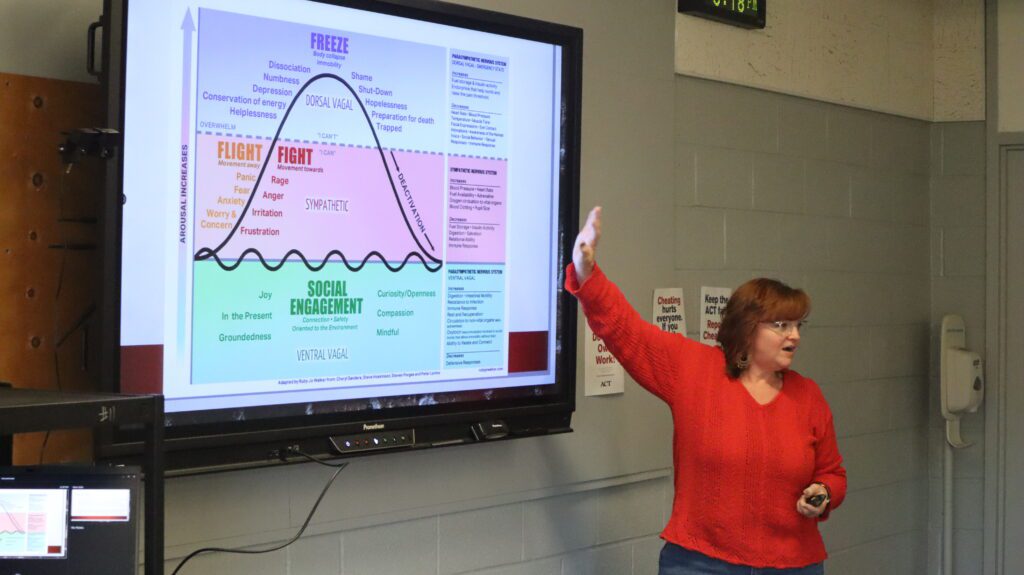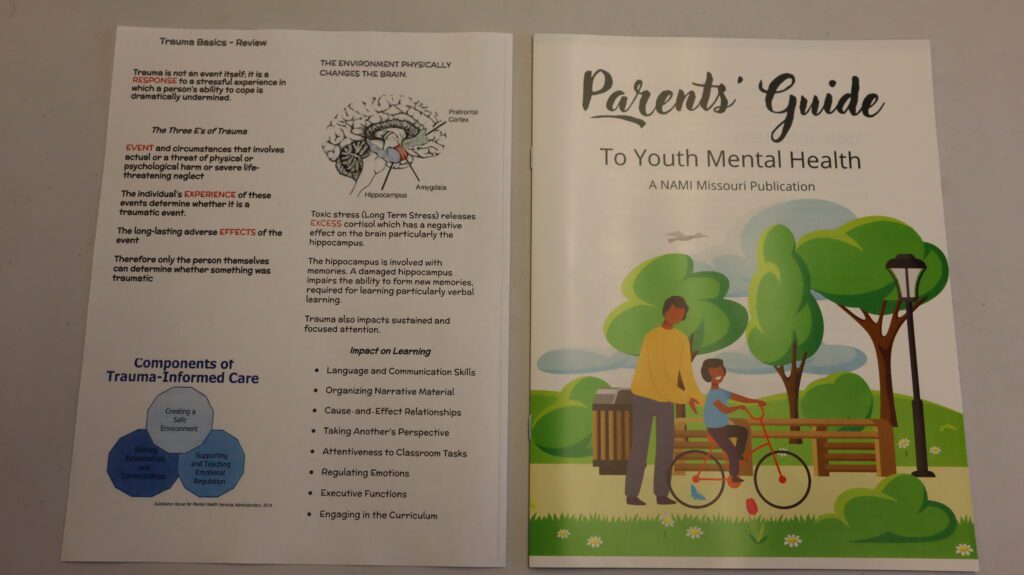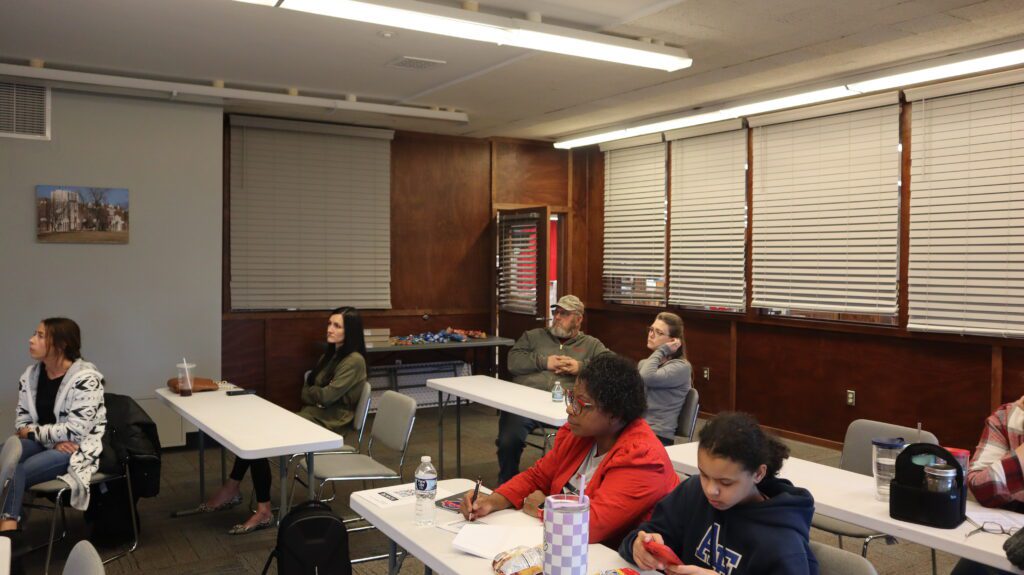
Taia Condie
Community Liaison for Place-Based Partnerships & ACC AmeriCorps Member
Trigger Warning: Mentions of trauma and suicide
The third event of the Raising Resilient Teens speaker series was held at Mexico High School on Thursday, March 20. Christina McCaw, Director of Student Services for Mexico Public Schools, led an important conversation on trauma, discussing its definitions, signs, and strategies for supporting those who experience it.

McCaw introduced parents to the concept of Adverse Childhood Experiences (ACEs), explaining that trauma can extend beyond mental health and significantly affect physical health. She outlined how ACEs can alter brain development and trigger heightened fight, flight, or freeze responses—reactions more frequently activated in individuals with unresolved trauma.
The event included alarming statistics: Two out of three students in the United States experience some form of trauma. Those with trauma are three times more likely to suffer from depression and 15 times more likely to die by suicide.
McCaw highlighted that trauma can stem from various sources—sometimes even everyday experiences like medical appointments can leave lasting emotional marks. She emphasized that while trauma may be unavoidable, communication and coping skills can empower children and parents to manage its effects.
“Structure and consistency are important. We need to make sure that kids know their routines and what to expect. That sense of predictability is key.”
Christina McCaw, Director of Student Services for Mexico Public Schools Tweet


Attendees received resources on understanding trauma and teaching healthy coping strategies. “Some coping skills are as easy as taking five minutes to cool down, breathe, relax, and then come back,” McCaw added.
The Raising Resilient Teens series is designed to help families build strong, emotionally aware foundations. The final event in the series, scheduled for April 30, will focus on suicide prevention and recognizing signs of emotional distress in teens.

Connecting with Our Students through Humor
This guest blog comes from a valued partner of PRI, Letcher County Public Schools, and reflects our shared commitment to amplifying rural brilliance. Across the

An Opportunity to Invest in Your Child: Understanding Trump Accounts
Building Long-Term Financial Security for Millions of Children: Tax-Advantaged Investment Accounts Coming in 2026 Beginning in 2026, a new and innovative program known as Trump

Showing Up Together: Stories of Attendance in Action
When September began, I asked a simple question: “Why be at school?” Over the past few weeks, I’ve seen that question answered in classrooms, homes,

The Power of Striving Together
Last week I had the opportunity to attend my first StriveTogether Cradle to Career Network Convening. On my flight to Atlanta, I kept thinking about

One of 15: Rosie Stafford Earns Prestigious GPC Certification
We are thrilled to share that our Program Manager, Rose-Linda “Rosie” Stafford, has joined an elite group of just 15 professionals in Kentucky to earn

Why Be at School? Because the Future Is Built One Day at a Time
As National Attendance Awareness Month begins, I think back on 30 years in education—and it’s not the ceremonies or milestones I remember most, but the
